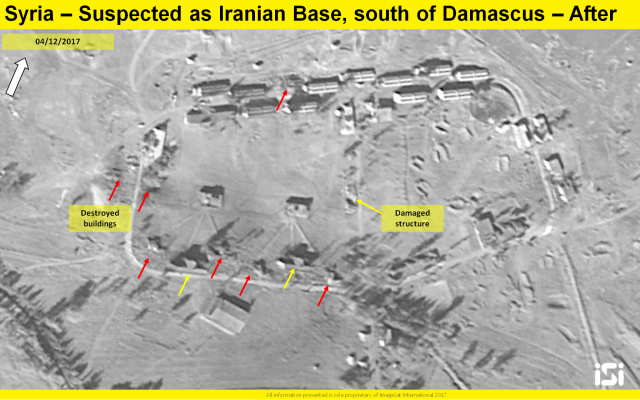A delegation of senior Russian security officials visiting Israel this week reportedly sought to dissuade Jerusalem from striking Iranian and Hezbollah weapons facilitates in Syria and Lebanon.
According to the London-based Arabic daily Asharq Al-Awsat, the purpose of Wednesday’s visit headed by Russian Security Council Secretary Nikolai Patrushev was Moscow’s desire to discourage Israeli intervention across the border, Channel 10 news reported.
The Russian delegation, which also included deputy ministers. army generals and intelligence officers, was met by Israel’s National Security Adviser Meir Ben-Shabbat as well as heads of Israel’s National Security Council and top military, defense and intelligence officials.
Patrushev himself met with Israeli Prime Minister Benjamin Netanyahu.
Israel has been negotiating with the United States and Russia, the main brokers in Syria, to keep Iran-backed Shiite militias and the Hezbollah terrorist group away from the border.
Netanyahu, Defense Minister Avigdor Liberman and others have all said that Israel’s policy is to target shipments of advanced weaponry, including accurate long-range missiles, that are heading to or in the possession of Hezbollah. Foreign media reports have attributed dozens of airstrikes on Iranian-linked targets in Syria to Israel.
Last week’s visit by the Russian officials came on the heels of Netanyahu’s meeting with Russian President Vladimir Putin in Moscow to discuss Iranian military entrenchment in the region.

Netanyahu said his meeting with Putin focused on Iran, with the prime minister saying if Tehran continues to try and deepen its influence in Syria, Israel would work to “stop it.”
“The question is: Does Iran entrench itself in Syria, or will this process be stopped. If it doesn’t stop by itself, we will stop it,” Netanyahu told Israeli reporters during a telephone briefing.
“We also spoke about Lebanon, which is becoming a factory for precision-guided missiles that threaten Israel. These missiles pose a grave threat to Israel, and we will not accept this threat,” he added.
Netanyahu said that the weapons factories are currently “in the process of being built” by Iran. Israel is determined to do whatever is necessary to prevent those two developments, Netanyahu said.
Last month, Israel’s envoy to the United Nations said there are 3,000 soldiers from the Iranian Revolutionary Guard Corps currently fighting in Syria, and accused Tehran of seeking to turn the country “into the largest military base in the world.”
Danny Danon told the Security Council that Iran controls 82,000 fighters in Syria, including 9,000 members of Hezbollah, 10,000 Shiite militiamen from Iraq, Afghanistan and Pakistan, and another 60,000 Syrians.
Danon urged member states not to “allow Iran to continue funding worldwide terror, pursue its dangerous internal arms buildup, and grow its military presence abroad.”
0 comments:
Post a Comment